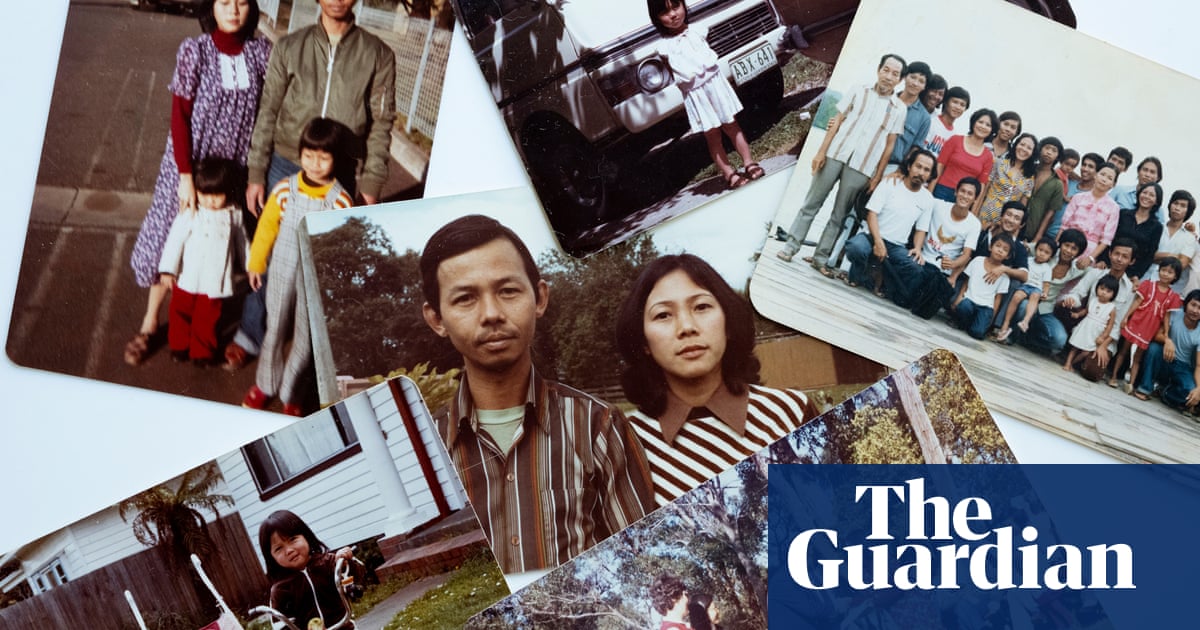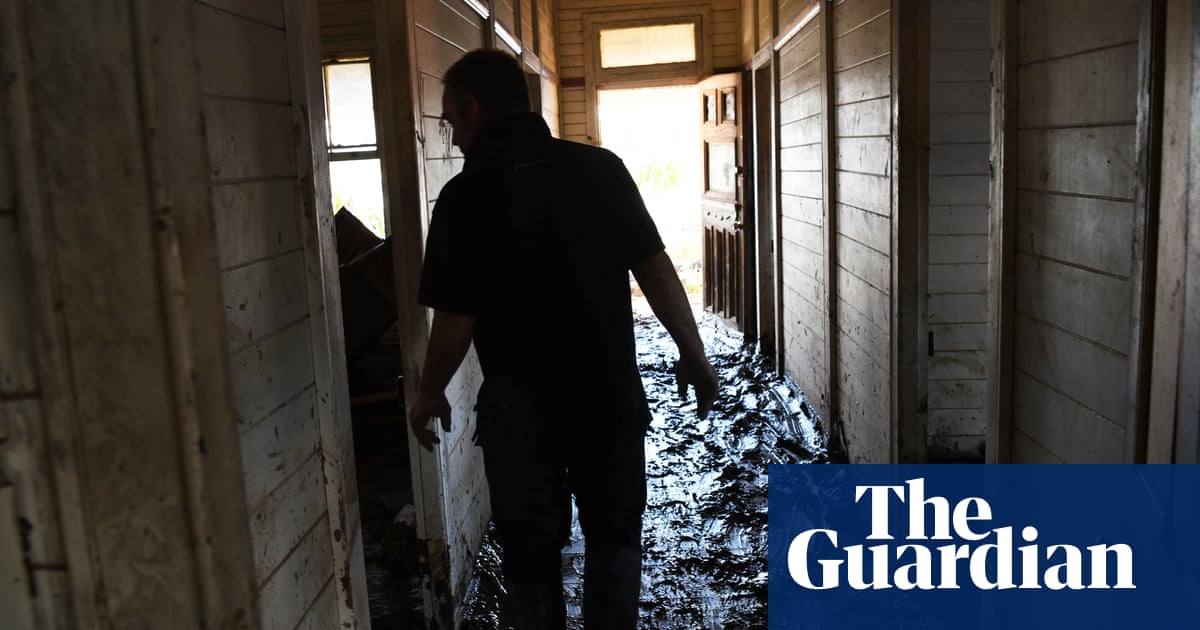“It’s like the world collapsed,” says Thi Xa Nguyen, looking back 50 years to the fall of Saigon.
She was living in the coastal town of Vũng Tàu where the soldiers of the southern Army of the Republic of Vietnam had retreated.
A 12-hour walk away in Long Thanh, Nguyen’s mother waited. There was only one way to know if her daughters were alive as their motherland fell – so she started walking.
Like the war itself, the date that commemorates its ending has lots of names. To millions of Vietnamese people today, it is giải phóng – the liberation, but for many it is the fall of Saigon or ngày vong quốc – the day the country was lost.
Nguyen says it was the day of sụp trời – the sky falling.
Wednesday marks 50 years since the northern People’s Army of Vietnam captured Saigon, the capital of the southern Republic of Vietnam, ending a war that had raged on for nearly two decades, taking more than one million lives and leaving hundreds and thousands displaced.
In Vietnam, there will be a sense of nostalgia in the air. It’ll be Reunification Day and every year the streets are emblazoned with national symbols: a golden star on a red flag and phrases expounding socialist values. Film-maker Mai Huyen Chi, speaking to the Guardian from Da Nang, had family on both sides of the war – remembering 1975 is not as straightforward.
While her mother’s family were ordinary citizens of south Vietnam, Mai’s grandfather was a war hero, fighting against both the French and Americans in the consecutive Indochina wars. She says he fought for “dignity, self-respect (and) because the French were ruling a country that didn’t belong to them … it made sense for the Vietnamese that we should run our own country.”
Since the conclusion of the Vietnam war – or American war as Mai and many Vietnamese call it – the country has developed at a breakneck pace. In a single generation, the nation has emerged from devastating poverty to become one of the rising middle-income economies of the region.
But Mai feels like Liberation Day in Vietnam will just be another public holiday.
“I don’t know if they even care,” Mai wonders about today’s young Vietnamese. She believes that in the age of social media, people only ever lived in prospering and independent Vietnam do not have the bandwidth to engage in history.
In Australia, the mood is very different. By the time northern troops had entered Saigon, most Australians had already left Vietnam, save for embassy staff and journalist Neil Davis, who scooped an exclusive film of tanks smashing through the gates of the southern president’s palace.
Australian forces, about 50,000 servicepersonnel, had been withdrawn by 1971.
“All Ho Chi Minh wanted was his country,” says a Vietnam war veteran, Tony Mullavey. “Someone put a bloody line through it, and there was north and south.”
It’s a perspective that Mullavey has developed with age, but at the time, he says, “we were doing our duty … it was for the good of Australia”.
He was conscripted to fight in Vietnam a few months before he turned 20. He recalls his training, being taught that the enemy wore black pyjamas and conical hats, and then arriving in Vietnam to see ordinary civilians in black pyjamas and wearing conical hats. It was there, he says, that they all grew up and experienced something many back home wouldn’t understand.
“Vietnam wasn’t considered a war,” Mullavey says. Despite the lethal combat, there was no formal declaration of war on the northern Democratic Republic of Vietnam. Organisations like RSL NSW would ostracise service personnel who returned from Vietnam. It would be a fight to get veterans the recognition they were due fighting for Australia. “Today, the younger veterans can thank us.”
It was that struggle that established organisations, like the Vietnam Veterans Association, that ensured those who fought in Vietnam got their due benefits and recognition. They also opened benefits to the refugee veterans of the southern Republic of Vietnam army – making Australia one of the only countries in the world to do so. But for Mullavey and his brothers in arms, the association and its outposts has been a vital source of human connection.
Perhaps the most visible way the Vietnam war changed Australia was through the thousands of Vietnamese refugees it accepted.
after newsletter promotion
The prime minister of the time, Gough Whitlam, had made overtures towards a multicultural Australia. His government declared the end of the White Australia policy and in the same year that Saigon fell, the Whitlam government passed the Racial Discrimination Act 1975.
Despite that, Whitlam had been apprehensive to accept Vietnamese refugees from the fallen south – many of whom would face reprisal for working with foreign forces like Australia.
Whitlam’s government saw southern refugees as anti-communist and potentially anti-Labor. Labor senator and repatriation minister, John Wheeldon, once said: “What did we see in the dying hours of the so-called Saigon government? What did we see of these heroic defenders of democracy? We saw them doing the scoot as fast as their legs could carry them.”
It wouldn’t be until 1976 – and a change in government – that Vietnamese refugees started arriving. Under the leadership of Malcolm Fraser, Australia came to accept the most refugees per capita of any country.
In 1981, Thi Xa Nguyen got her chance to seek asylum. Her husband had survived arrest and re-education to save enough money and petrol to leave Vietnam by boat. They sedated their daughters and boarded what essentially was a riverboat. It was a voyage of seven days before they arrived in Indonesia.
By 1982, Thi and her family had been resettled in Melbourne. It was a journey often recalled in dreams, but it all came flooding back vividly at her daughter Tammy’s wedding.
“I got married in Fiji,” says Tammy, who is the chief executive of the Vietnamese Museum Australia. “The ferry that we took was very unfortunate because … the weather was really terrible … and it was so traumatic for her. It just reminded her of the escape from Vietnam.”
“It was actually really challenging,” Tammy says. She’s part of what the community calls the 1.5 generation, a cohort of refugees who arrived in Australia as children and grew up in a land drastically different from the one they were born in. To this day, she remembers how hard it was to grow up as a minority. “If in your formative years you don’t fit in somewhere, who do you fit in with?”
Tammy remembers from her work social worker when her community was overrepresented in prisons in Melbourne. “It was pretty diabolical … If you’re a displaced person and your parents are busy setting up a new life, they’re busy working and don’t have time, you’re going to hang out with other kids … who feel ostracised by western society.”
“We were normal kids growing up who got into a whole lot of issues: drugs, teen pregnancy, crime.”
Today Vietnamese is the fourth most spoken language in Australia , and more than 300,000 Australians have Vietnamese ancestry. Vietnamese staples like banh mi and pho have entered the culinary lexicon (and standard dictionary) of the country.
Thi says despite the pain she endured and the nation that she lost, becoming an Australian has been “like a dream come true”.
“That’s what we were raised with. Gratitude for being in this country,” Tammy says. “We have a good life off the back of the sacrifice that my parents made. I wouldn’t have this life if they weren’t brave enough to get on that boat.”










